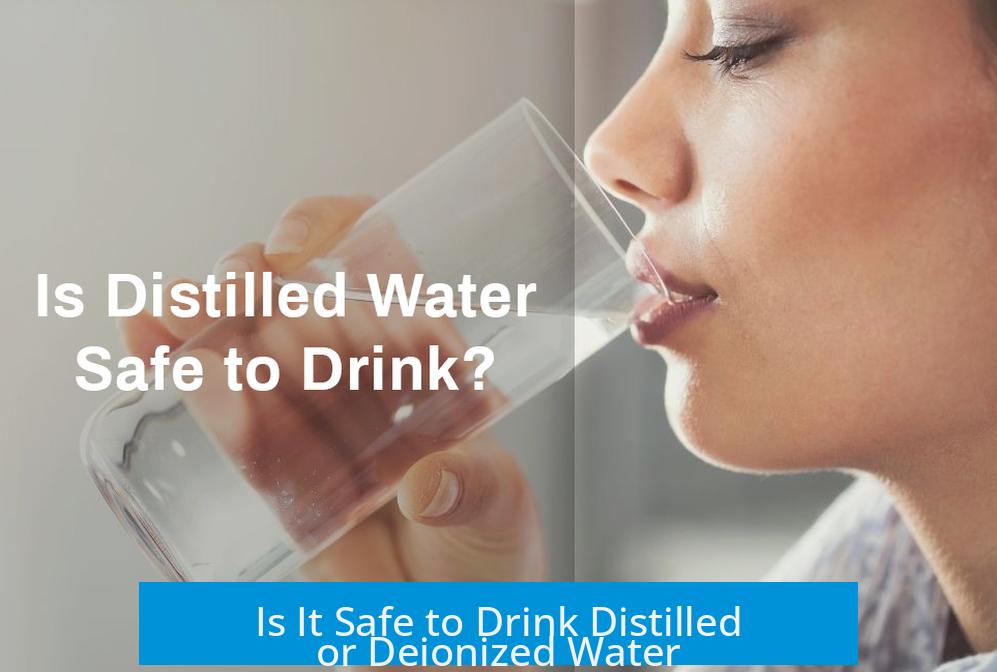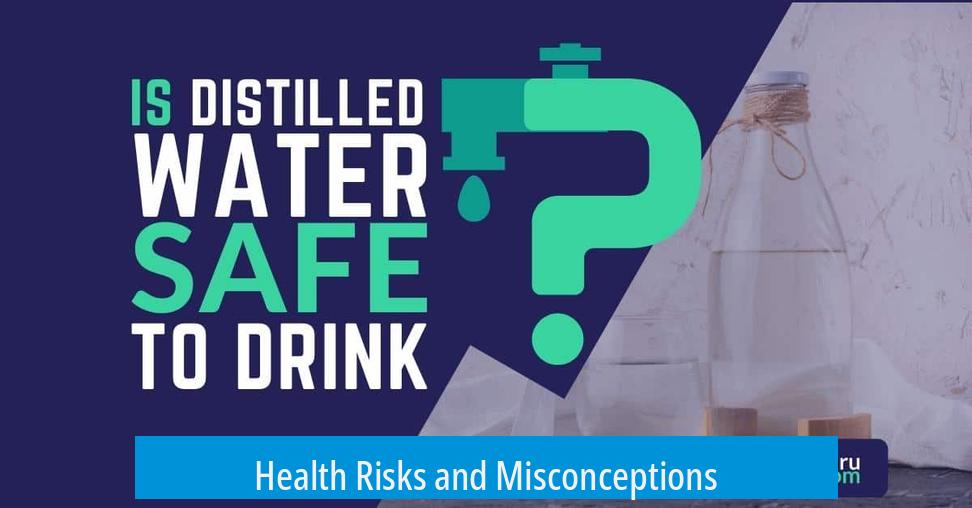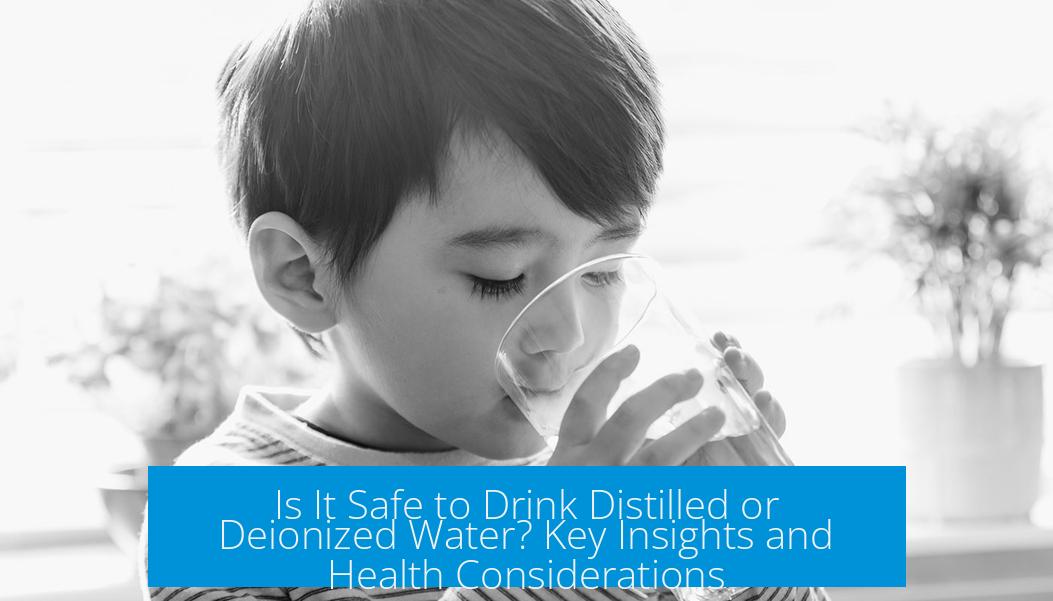Is It Safe to Drink Distilled or Deionized Water?

Drinking distilled or deionized water is generally safe, provided the water meets food-grade standards and is consumed in reasonable amounts. These types of water have very low ion content, similar to reverse osmosis (RO) water, and are widely used when purified water is needed.
Composition and Ion Content
Distilled water results from boiling and condensing water, removing most dissolved salts and minerals. Deionized (DI) water, on the other hand, is treated chemically to remove ions. Both are low in ions compared to typical tap water. Yet, they are not completely unlike bodily fluids—both tap and distilled water contain fewer salts than fluids inside the human body.
| Type of Water | Ion Content |
|---|---|
| Distilled | Very Low |
| Deionized | Very Low |
| Reverse Osmosis (RO) | Low |
| Tap Water | Higher |
Safety and Preparation
Water intended for consumption must be food grade. Distilled or deionized water prepared in laboratories or non-food environments may carry contamination risks and should not be drunk. However, bottled water labeled as DI or RO water usually meets safety standards and is commonly consumed worldwide without issue.
Health Risks and Misconceptions

The major health concern is not the type of water but how much and how fast it is consumed. Drinking excessive amounts quickly can cause water intoxication (hyponatremia), a condition when sodium levels drop dangerously low. This condition applies to all types of water, including tap, distilled, or DI.
For example, an intake of about 8 liters over a short period can overwhelm the body’s balance, leading to medical emergencies. This risk is especially noted in vulnerable populations, such as infants given too much water without proper electrolytes.
Personal Use and Practical Considerations
Many people prefer distilled water to avoid certain contaminants like chlorine found in tap water. Distilled water contains minimal ions but still supports hydration effectively. Its safety hinges on proper preparation and cleanliness during storage.
Key Takeaways
- Distilled and deionized waters have low ion content, similar to RO water.
- Only food-grade distilled or deionized water is safe for drinking; lab-grade water may be contaminated.
- Bottled DI or RO water is widely consumed safely worldwide.
- The main risk from any water is drinking too much too fast, causing hyponatremia.
- Personal preference for distilled water can avoid certain tap water additives.
Is it safe to drink distilled or deionized water regularly?
Yes, drinking distilled or deionized water is generally safe if it is prepared as food grade. These waters have very low ion content, similar to reverse osmosis water. Many people consume bottled DI or RO water without health issues.
Why should lab-distilled water not be consumed?
Lab-distilled water is often not made to food grade standards and may be contaminated. Drinking such water can pose health risks due to impurities or residues present from the distillation process.
Does distilled water lack essential minerals needed by the body?
Distilled water has very low ion content but still contains some ions. It does not provide significant minerals, but most minerals come from a balanced diet rather than water alone.
Can drinking distilled or deionized water cause water toxicity?
Water toxicity occurs when drinking excessive amounts of any water too quickly. The risk is not specific to distilled or deionized water but to the total volume consumed in a short time.
Why do some people prefer distilled water over tap water?
Some avoid tap water because it can contain chlorine or other chemicals. Distilled water is free from these additives, making it a preferred choice for those concerned about contaminants.
Is there a difference between distilled, deionized, and reverse osmosis water?
Yes, the processes differ, but all produce low-ion content water. For practical purposes, their safety and consumption effects are quite similar.





Leave a Comment